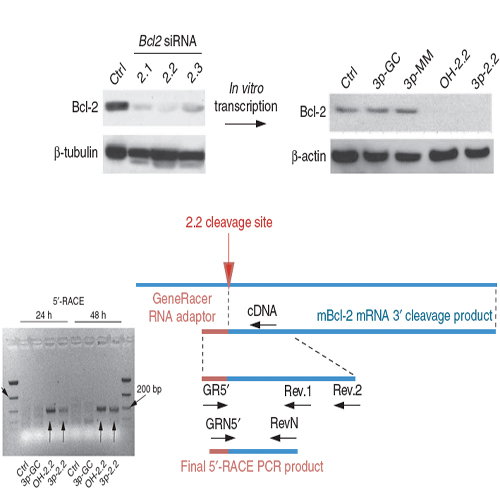carell_1
02-Nov-2008
Genetic and epigenetic plasticity allows tumors to evade single-targeted treatments. Here we direct Bcl2-specific short interfering RNA (siRNA) with 5¢-triphosphate ends (3p-siRNA) against melanoma. Recognition of 5¢-triphosphate by the cytosolic antiviral helicase retinoic acid–induced protein I (Rig-I, encoded by Ddx58) activated innate immune cells such as dendritic cells and directly induced expression of interferons (IFNs) and apoptosis in tumor cells. These Rig-I–mediated activities synergized with siRNA-mediated Bcl2 silencing to provoke massive apoptosis of tumor cells in lung metastases in vivo. The therapeutic activity required natural killer cells and IFN, as well as silencing of Bcl2, as evidenced by rescue with a mutated Bcl2 target, by sitespecific cleavage of Bcl2 messenger RNA in lung metastases and downregulation of Bcl-2 protein in tumor cells in vivo. Together, 3p-siRNA represents a single molecule–based approach in which Rig-I activation on both the immune- and tumor cell level corrects immune ignorance and in which gene silencing corrects key molecular events that govern tumor cell survival.











